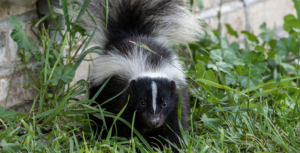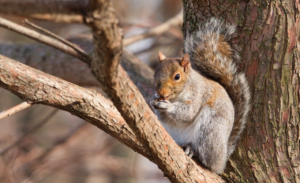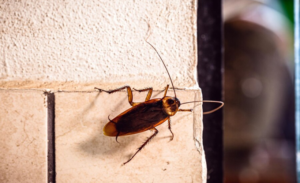After a chilly winter and a soggy spring, the warmer weather is like a sweet reward we’ve all been waiting for. I mean, just strolling outside without bundling up in hats and jackets? Pure bliss! But here’s the catch: along with the sun and fun, those pesky bugs, especially those bloodsucking mosquitos, and stinging insects make their grand comeback. Ugh, ain’t nobody got time for that. Many of us, including me, will do everything possible to keep those annoying insects away and enjoy the sun without any disturbances.
Some bug sprays are on the market that work like magic to kill these pests, but don’t they have a role in our Ontario environment? Wouldn’t it be better if you could repel bugs naturally and in a way that supports nature? For some extra armor against the next years coming bug invasion, you can go all out by planting some of these 11 insect repelling plants in your yard.
They’re like your green bodyguards against the mosquito menace!
What Are Pest-Repelling Plants?
These popular herbs and plants possess certain compounds, scents, or characteristics that insects find unpleasant or offensive, causing them to avoid the sunny areas where these plants are grown. We haven’t found any plants for in-laws just yet, but we will keep you posted!
Here are some common characteristics of insect repelling plants for your home or garden:
- Natural Chemical Compounds: Many insect repelling plants produce natural chemicals, active ingredients, or essential oils that insects dislike.
- Strong Scents: Insect repelling plants often have strong and distinct scents that mask the attractants that draw insects to your space. These scents can be pleasant to humans but repulsive to insects.
- Toxicity to Insects: Some plants are toxic to beneficial insects when ingested. Insects that feed on these plants may be poisoned or deterred from further feeding.
- Physical Barriers: Certain plants have thorns, spines, or prickly leaves that create physical barriers, making it difficult for insects to land or access the rosemary plants.
- Companion Planting: Sometimes, planting specific insect-repelling plants alongside vulnerable or desirable plants can deter asparagus beetles, cabbage moths, cabbage loopers, and cabbage worms from attacking them.
The Top 11 Best Insect Repelling Plants
- Lavender
Lavender is a plant that smells nice and can keep mosquitos away. Some research in 2019 found that lavender plants and lavender oils can make mosquitos stay away for up to six to eight hours. Planting lavender near your house can also bring bees and butterflies because they like purple flowers.
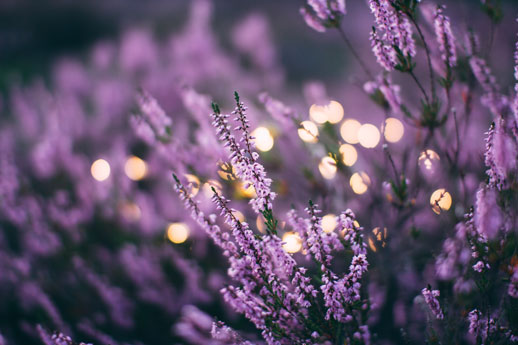
To grow lavender, you should put the plants about 18-24 inches away from each other and make sure they get lots of sunlight. Water them once or twice a week, depending on how dry the soil is and how old the plants are.
- Basil
Basil (Ocimum basilicum) is a popular culinary herb with a strong aroma that mosquitoes find unpleasant. Placing potted basil plants on your outdoor dining table, flower beds, or windowsills can help keep mosquitoes at bay.
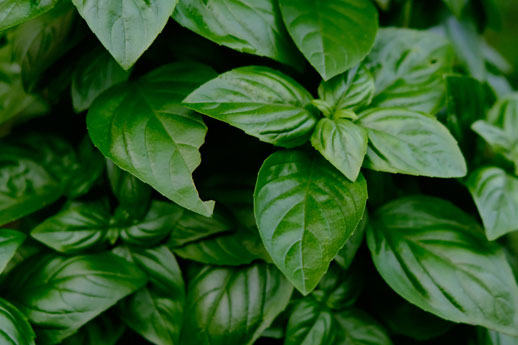
- Thyme
This tough plant can help keep mosquitoes away, but only when you crush it. A professor named Dr. Donald Lewis from Iowa State University found that it’s about 62% as good as DEET, an effective mosquito repellent. You can do this by cutting off some stems and rubbing them between your hands. You can also burn a few twigs on a campfire to keep mosquitoes away.
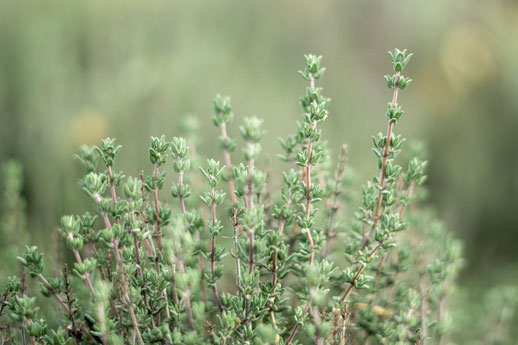
- Mint
Mint is ideal for planting in containers or pots, as it spreads vigorously. Place mint pots around your outdoor spaces to discourage insects from invading your herb garden, front door steps or patio.
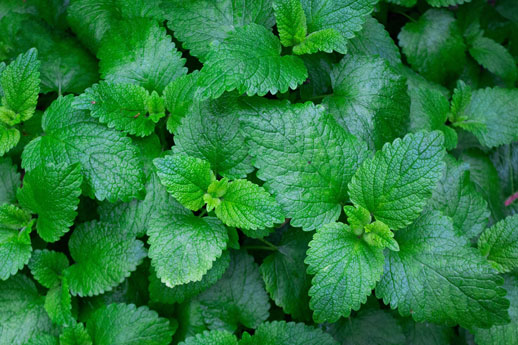
- Lemongrass
Lemongrass (Cymbopogon citratus) is famous for its citrusy aroma, a natural mosquito and bug repellent. You can grow lemongrass in the ground or large pots. Usually these guys are top sellers at flower shops and garden centers because of their natural bug repellent abilities.
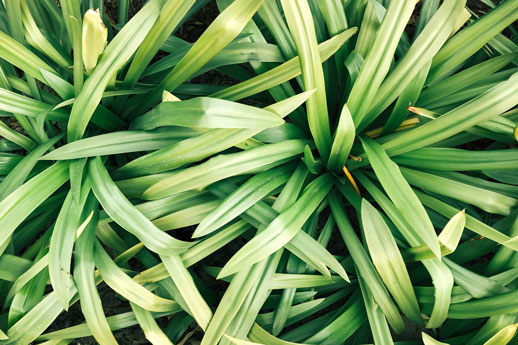
- Alliums
Plants like Allium giganteum, which can grow really tall, are known to help keep annoying insects away. People from Indigenous communities have used these plants as natural bug repellents for a long time. Planting alliums alongside vegetables like tomatoes, peppers, potatoes, cabbage, broccoli, kohlrabi, and carrots can be good for those vegetables.
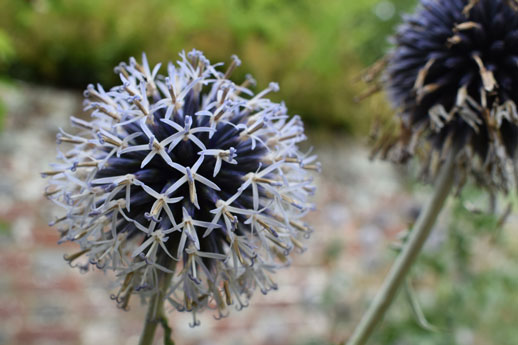
- Chrysanthemums
Chrysanthemums, often called mums, contain pyrethrin, used in wide variety of commercial insect repellents. These colorful flowers can help repel aphids, ants, and other common pests. Plant them in your garden to add colour while naturally controlling insects such as mosquito larvae, potato beetles, etc.
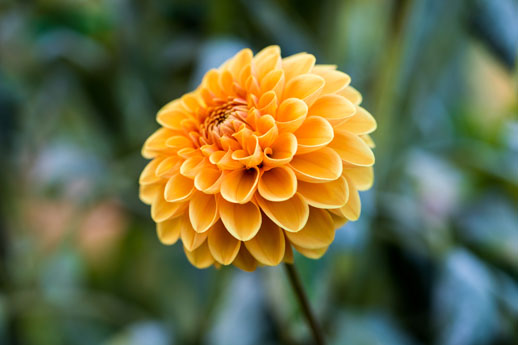
- Petunias
Petunias (Petunia spp.) are vibrant, trumpet-shaped flowers that brighten up your garden and repel aphids and tomato horn-worms. Plant them near vegetables or other susceptible plants for protection.
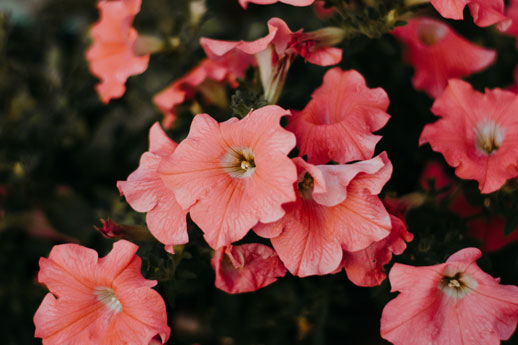
- Marigolds
Marigolds (Tagetes spp.) are well-known for their bright, cheerful orange blooms and give off a pungent scent that deters mosquitoes and other variety of insects.
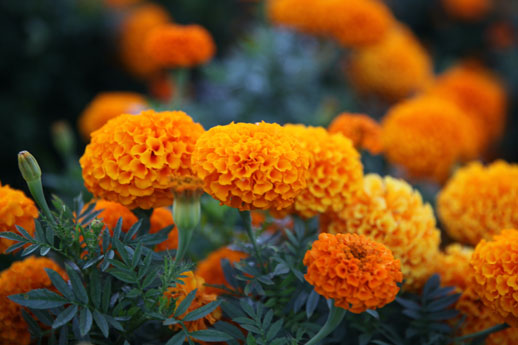
- Citronella Plant
The Mosquito Plant, or the Citronella Grass (Pelargonium citrosum), emits a lemony fragrance that naturally repels mosquitoes. This is the Mother of all bug repelling plants. To create a mosquito-free zone, keep it in pots or containers on your porch, patio, deck or near front door entrances. Citronella candles are a great addition to your outdoor decor and provides effective insect control for many hours.
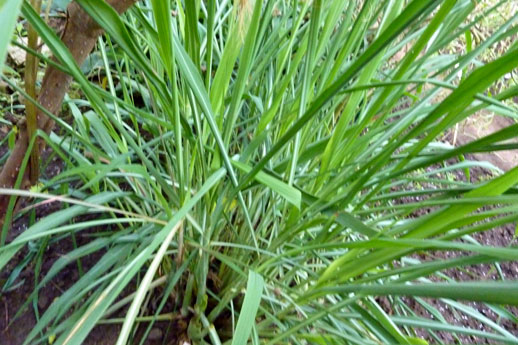
- Fluffy Purple Flowers
Fluffy purple flowers have coumarin, which is used in some bug sprays. Mosquitoes don’t like the smell of this stuff, and it’s also found in sweetgrass. These flowers not only help keep annoying bugs away but also look pretty. They make blue, pink, and white flowers in the summer and fall.
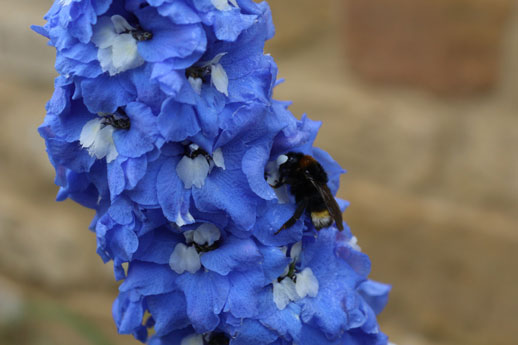
To make these flowers happy, put them in good soil in mulch filled gardens, flower beds, or along the edges of your home.
Call Pro Trap Pest Control and Bug Extermination Today
Are you tired of pesky insects ruining your outdoor gatherings and garden experience? At Pro Trap, we’re not just your trusted pest control company but your partners in creating bug-free havens for your outdoor spaces. We will keep all those bugs at bay.
Our Expert Pest Services:
- Pest Control: Beyond animal removal, we specialize in comprehensive pest control solutions. We’ve covered you, from ants to mosquitoes and everything in between.
- Bug Extermination: Say goodbye to those relentless garden invaders. We offer top-notch bug extermination services to protect your trees and beautiful plants.
- Wasp & Hornet Extermination: Don’t let stinging insects disrupt your outdoor enjoyment. Our experts will safely and efficiently handle wasp and hornet extermination.
At Pro Trap, we understand the importance of a bug-free environment. With our trained staff and expertise in pest management, bug extermination, wasp and hornet extermination, and guidance on insect-repelling plants, we’re here to transform outdoor spaces into comfortable, insect-free zones.
Say goodbye to those annoying insect bites and hello to a more enjoyable and peaceful outdoor environment with Pro Trap. Call us today to get started with any pest control services in Windsor or Chatham.



